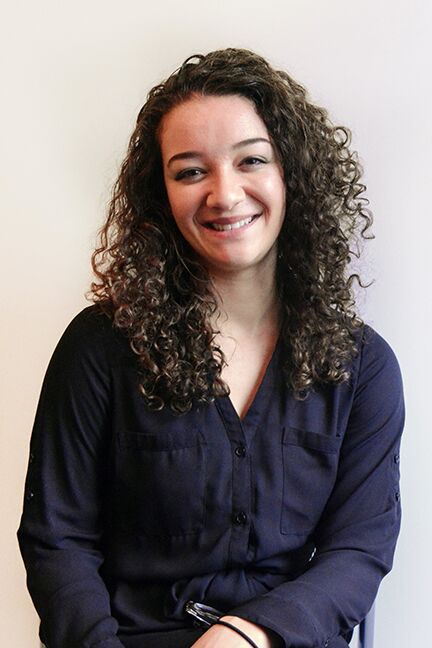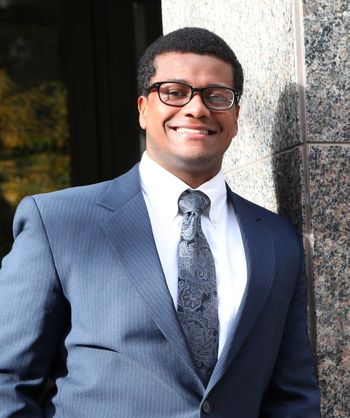PLANNING MATTERS…JUST NOT FOR THE REASONS YOU THINK
This ambiguity doesn’t mean that planning is irrelevant, however. Quite the contrary, says Penn State’s Cameron Stevens, who quotes President Dwight D. Eisenhower’s famous dictum on planning: “I have always found that plans are useless, but planning is indispensable.” For the Class of 2017, planning served as an exercise in separating knowns for uncertainties, sharpening decision-making and formulate potential responses in the process. “Nothing that we study can be tested reliably in a laboratory and it is very rare that rules can be applied universally,” Stevens concedes. “For this reason, success in business relies upon an individual’s ability to plan ahead and prepare for the twists and turns that a chaotic world can throw at us.”
Planning brings other benefits as well according to the “Best & Brightest.” It demands that leaders stop and think before hastily “charging ahead and having to go back to square one,” says Indiana University’s Caroline Cronin, an E&Y hire. In other words, it inserts science to guide action in an arena, where, in the words of Cornell University’s Casey McClaren, “winging out only works sometimes.”
That said, Zinani Harriott leaves no doubt on where she stands on planning. “The biggest lesson I learned from studying business is that if you don’t have a plan or strategy you will ultimately not succeed, states the University of Massachusetts-Amherst grad. “Every decision and task you take in order to get to your goal needs a clear strategy. A strategy helps you figure out what works and what does not work, and what changes you need to make in order to reach that goal.”
Then again, argues Wake Forest’s Barrett Redmond, maybe failure isn’t the worst possible outcome in business. “My deepest learning in life and throughout my studies has been a result of some form of failure. I’ve come to appreciate and welcome failure, knowing that it will make me stronger, more experienced, and, ironically, more confident moving forward.”
ATTITUDE AND WORK ETHIC ARE STILL THE DIFFERENCE MAKERS
There is a popular saying that ‘finance is the language of business.’ For the Class of 2017, it is more of a dialect, with spark and strategy, being the unifying forces that beget shared understanding. “The biggest lesson I learned from studying business is that regardless of how many numbers you enter into Excel sheets, there will still be times when a method of thinking that is not based on numerical data will be required,” speculates Justin Flynn, who majored in Finance at Boston University. “There are larger social forces that must be considered if you want to produce innovative solutions. Think Steve Jobs. Think Elon Musk.”
And think mindset too. If there’s one area emphasized by business schools everywhere, it would be the importance of projecting positive attitudes. That yielded plenty of familiar maxims from the Class of 2017. Exhibit A comes from Texas Christian University’s Adam Beasley: “People hire people, not skills. Understand yourself and others and you will go far.” Like that? His classmate, Zach Miller, one-ups him with this bumper sticker wisdom: “Speak with confidence and do the right thing because people are always observing you.” However cliché, they reflect some of the most important lessons in business — ones that are easy to remember and near impossible to practice. Even more, they are a reminder that people remember what they see at the get-go far longer that what someone can do over time. “Make a really good first impression,” urges Kaiser Tan from the College of New Jersey. “People are quick to judge. You never know how far a firm handshake, a straightened tie, and a smile can get you.”
Of course, appearances can only go so far. Millennial stereotypes aside, this was a “Best & Brightest” class who understood that they needed to buckle down to achieve success. Lehigh’s Kelly Mayid absorbed this lesson early on. After spending her freshman year doing the “bare minimum,” Mayid came to a bombshell revelation: She wasn’t working towards anything. More than that, she was barely scratching the surface of her potential. After the light switch went on, she began reaping the rewards of her hard work. “One of the most notable things I’ve learned is that success does not just fall on your lap,” she professes. “Success is something you need to consistently work towards. Without putting in the effort, you won’t get the outcome.”
STOP COMPARING YOURSELF TO YOUR PEERS!
In business school, it can be easy for students to fall into a common trap: comparing themselves to others. It can also be a toxic and self-defeating measure, resulting in students pursuing the wrong paths for the wrong reasons. At Drexel, Olivia Guerrasio considers the most important lesson she gained from majoring in business to be learning to judge herself on her terms. “Never base your own success on someone else’s journey,” she cautions. “For me, learning to focus on my own goals and push ahead with those proved to be much more productive and led to a much more positive outlook.”
Sometimes, that means saying “no,” a gut-wrenching choice in a world where options are plentiful and a can-do spirit is glorified. However, says Purdue’s Riley Owens, turning some offers down early can save students from making bigger harder choices later. “People will always want you to help them but you can’t do everything,” she explains.” Sometimes you have to say no to make sure all your current commitments are completed at a high level.”
So how did these “Best & Brightest” business majors operate day-after-day at the highest level? For Michigan State’s Jurewicz, the secret was to always stay curious. “I have met thousands of people so far in my undergraduate career, and each one has a new perspective or insight on business. My learning will not stop once I graduate.” Jeremy Goldstein, a Forbes 30 Under 30 Scholar in 2016, followed a similar formula at Northeastern University. “Never stop learning,” he advocates. “I can say that I’ve probably learned just as much, if not more, about my career and profession through co-ops than I have inside the classroom. Business is always changing and evolving, and it’s easy to get left behind if you don’t keep up. View every day at work as an opportunity to learn something new about your job or someone else’s.”
Curiosity alone doesn’t guarantee success. To get the most from business school, Lindsey Hirt prescribes a healthy dose of hunger and self-awareness too. “The biggest lesson I gained from studying business was the importance of being internally driven (knowing yourself, your values and your mission) and being externally focused (focusing on how can I use my strengths and skills to positively impact others),” writes the University of Michigan grad.
SWALLOW YOUR EGO AND ASK FOR HELP
What was the most common takeaway for the Class of 2017? Ironically, it was the one that required them to trust in others: Don’t be afraid to ask for help. This is advice that the University of Minnesota’s Raffi Maristela intends to follow as he begins an entry level job at McKinsey. “I’ve realized that doing things on your own doesn’t always equate to being the most talented, and not asking for help doesn’t mean you’re the smartest person in the room,” he counsels. “No matter how self-sufficient and independent you are, collaboration and help from others can always be beneficial – whether it’s in a business team or not. I’ve learned not to frown if I have to ask for help, but instead, to realize when and where you need it early on and encourage it.”
The value of humility was also a big lesson for Everett Green while he majored in Finance at the University of Pittsburgh. “Nobody knows everything, and that is ok! For this reason, I often believe it is more important to understand what you do not know rather than project what you do know – this way you can fill in the holes.” For Rutgers’ Lauren Kelly, the real trick is doing more than recognizing what you don’t know.
“Be resourceful,” she says. “It’s not always about immediately knowing the right answer, but knowing exactly where to go or who to ask to find it.”
In William Shakespeare’s As You Like It, there is a passage that goes, “All the world’s a stage / And all the men and women merely players / They have their exits and their entrances / And one man in his time plays many parts.” Translation: The stuff of drama can be found anywhere in life…even business. Channeling his inner Bard, Arizona State’s Juan Pablo Forno Parra offers perhaps the most valuable lesson for this year’s “Best & Brightest” business majors: Succeeding in business requires the same virtues as succeeding in life itself.
“Business is a symbolic representation of life itself. You have to be careful about the people you bring in; there are factors you cannot control; and there are as many thrilling moments as there are heartbreaks. And much like in life, business rewards people who are willing to take risks and put in the work.”
DON’T MISS: MAJORING IN BUSINESS: TOP GRADUATES SHARE WHAT THEY LOVED MOST and FAVORITE LEADERS OF TOP BUSINESS MAJORS














Questions about this article? Email us or leave a comment below.